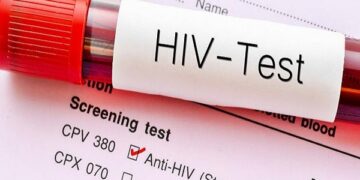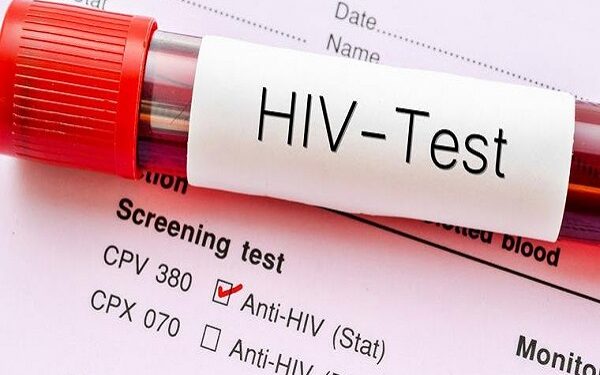By Ebi Kesiena
According to data from the 2023 national and sub-national HIV and AIDS estimates and projections released on Thursday, 17,774 people in Ghana, including 6,457 males and 11,317 females, were newly infected with HIV in 2023 alone.
The newly infected population includes 4,869 young people between the ages of 15 and 24, 1,698 children under 15, 1,520 adolescents between 10 and 19, and 16,076 adults above 15.
The Ghana AIDS Commission boss, Dr Kyeremeh, said the country was committed to achieving the 95-95-95 target by 2050.
Dr. Kyeremeh Atuahene, the Director General of the Ghana AIDS Commission, stated that while the new infections mark a significant reduction in the rate over the past decade—a 14.8% decrease from 2013 to 2023—they fall short of the country’s target of a 17% annual reduction. The goal is now set for a 41% reduction in new infections by 2030.
Meanwhile, the population of persons living with HIV in Ghana in 2023 was 334,095. This comprises 115,891 males and 218,204 females. A further breakdown revealed 17,550 children under 14, 16,381 adolescents between 10 and 19, 33,245 young adults between 15 and 24, and 316,545 adults aged 15 and above were living with HIV in Ghana.
Furthermore, the HIV population in Ghana increased by 9% between 2013 and 2023 and is projected to rise by an additional 6.8% by 2030. Despite available treatments, 12,480 Ghanaians died from AIDS-related illnesses in 2023.
Dr Atuahene reaffirmed Ghana’s commitment to reaching the 95-95-95 targets. The 95-95-95 target refers to ensuring that 95 per cent of people living with HIV are aware of their status, 95 per cent of those on antiretroviral therapy (ART) reaching viral suppression, and 95 per cent of those receiving ART know their status by 2025. Ghana has so far achieved 65.3-69.4-89.0 of the targets.
According to Dr Atuahene, Ghana’s working-age population forms the largest group of people living with HIV, and should the situation not be handled appropriately, it could spell doom for the country.
Gospel musician Sonnie Badu recently attributed Ghana’s rise in new HIV infections to the festive season known as “Detty December.” In a radio interview, he urged citizens to be mindful of the pressures and challenges within Ghana’s health system, calling for greater awareness and responsibility during such times.



































